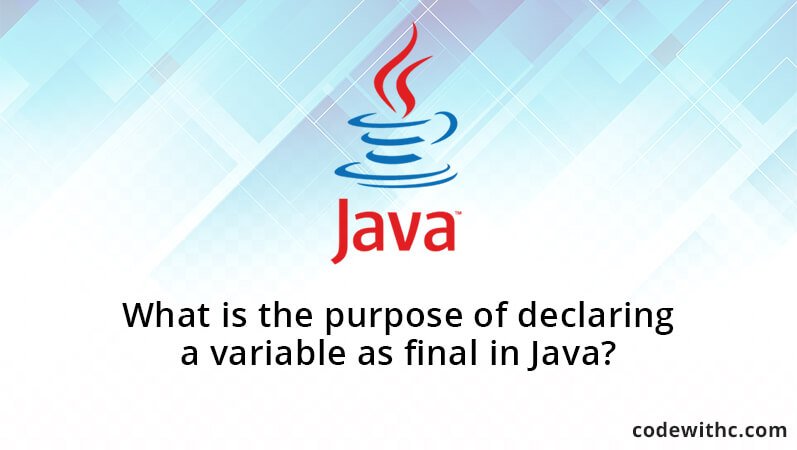A variable is used in Java programming language to describe variable identification rules and concords
The purpose of declaring a variable as final
In Java when a variable is declared as final; the variable is initialized into a fixed value which cannot be altered after initialization. Once a variable created as final; its value can never change.In java it is mandatory to declare a variable before using it in a program. A programmer can store numeric variables as string values into the specified variables. Variables declared belong in the same group such as byte, char, and float variables. These keywords are used in variables declaration to identify the type of variables declared.
Effective final variable
The effective final variable represents an aptitude from Java designer to the Java developers. There is barely any variance between final local variables and effective final variables, once declared their values cannot change. If the values are changed, the compiler raises an error.
The final keyword
The final keyword is a variable that can only be initialized once and its reference cannot be changed once assigned. Final keyword makes primitive variables constant. For non-collection entity variables, the final keyword denotes the entity can be instantiated and its reference assigned. However, the entity variable cannot be linked to any other reference once the final variable is declared. For collection entity variable such as a List or Map, elements can be allocated to the group but the collection reference cannot be allocated to a dissimilar collection. This is applicable when the final variable value can be changed.
Entity variables
A variable that is an entity type value and is declared as final receives different reference per object declaration; though all the references have the same value. The final variable is generally paired with a static variable to prevent improvident of extra references from being formed across the instances of a class.







